#'follow for follow
Explore tagged Tumblr posts
Text

#follow @toastbutteregg on twitter i follow back#memes#dank memes#relatable#relatable memes#twitter#twitter memes#beyoncescock#tweets#funny#funny memes#toastbutteregg
104K notes
·
View notes
Text

60K notes
·
View notes
Text


Since you guys liked Marcille as Kermit that much, it seems fitting to thank you for my 12k milestone with MORE Kercille. And this time, Miss Falin is also here.
Thank you so much again everybody! MWAH 💗
#dungeon meshi#delicious in dungeon#marcille donato#falin touden#kermit the frog#did you know that pigs will sometimes eat rocks?#and since we are about trivia. This is my second time reaching over to 12k followers. You see#after the great purge I lost a bunch and went back to 11k for a loooong time#who would have thought a shitpost about frogs would get you back into my home#welcome back
72K notes
·
View notes
Text
Eight-year-old Max Alexander holds the world record as the youngest runway fashion designer. He began designing at the age of four.
#g'night everybody#be kind#and encourage people to follow their dreams#or at least don't bash someone#for what their dreams are
41K notes
·
View notes
Text


#oh my god?????#txt#STOP FOLLOWING US!!! WE DONT POST LIKE THIS. WE POST JFK RPF#'blah hah hah and everyone clapped' don't you want to live in a world of beauty? with us?#‘why can’t i reblog this?’ Because trads started going He dodged a bullet in our notifications
62K notes
·
View notes
Note
YOURE 30???????
yeah I mean i've been posting on tumblr since 2011, I'm part of the geriatric tumblrinas
51K notes
·
View notes
Text
I fully understand why "character A is astounded at the sight of character B's penis" is a specific kink that gets tagged for, but the fact that some platforms choose to tag this kink as "penis awe" is unintentionally very funny. Now I'm picturing penis experience kink tags for all those other allegedly transcendent emotions in the glossary of your Philosophy 101 textbook. Penis faith. Penis Weltschmerz. Penis apprehension of the absurd.
#media#fandom#fanfic#fanart#humanities#philosophy#tagging#penis mention#penis angst being here omitted because most of this blog's followers already know how that one works
22K notes
·
View notes
Text

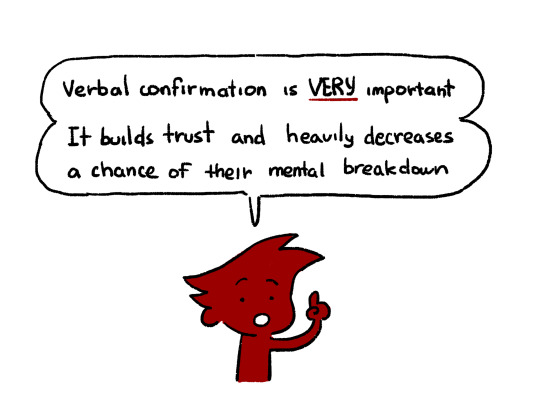

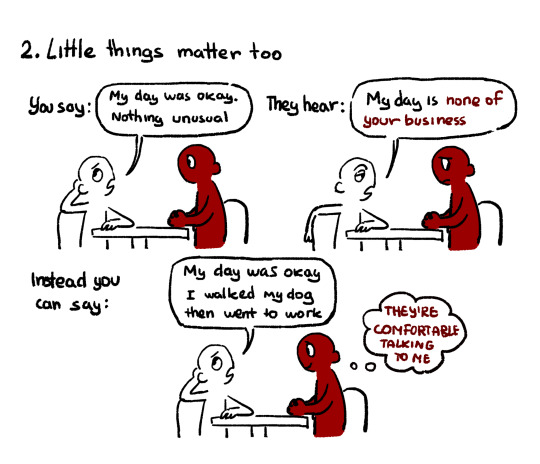
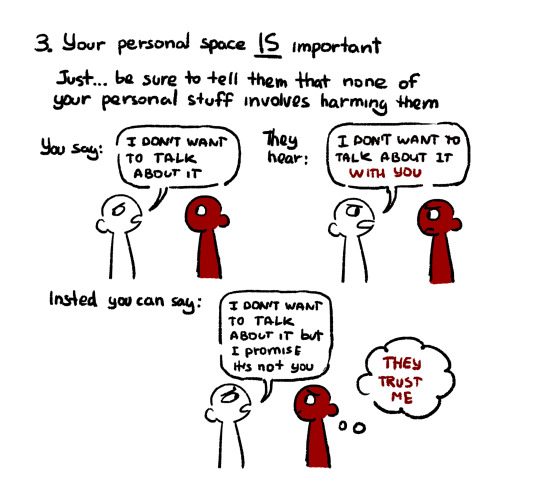
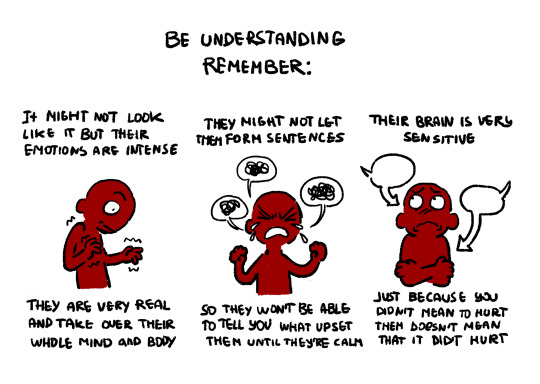
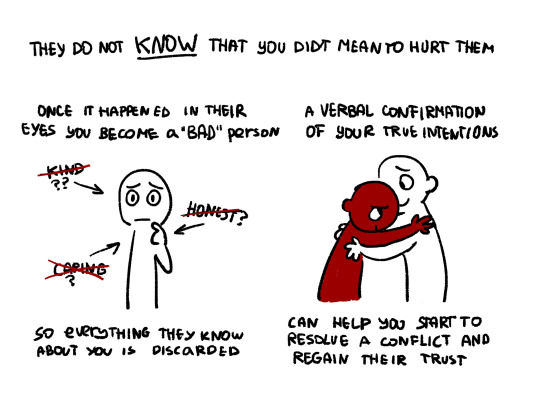
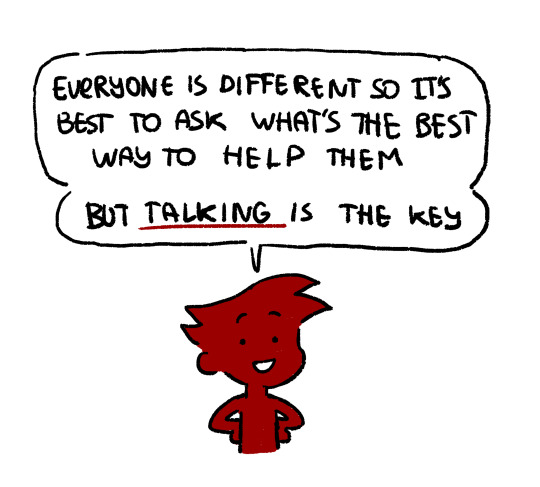
#and to my bpd followers#believe me you're not a burden#bpd#borderline personality disorder#bpd awareness
55K notes
·
View notes
Text
Planet's Fucked: What Can You Do To Help? (Long Post)
Since nobody is talking about the existential threat to the climate and the environment a second Trump term/Republican government control will cause, which to me supersedes literally every other issue, I wanted to just say my two cents, and some things you can do to help. I am a conservation biologist, whose field was hit substantially by the first Trump presidency. I study wild bees, birds, and plants.
In case anyone forgot what he did last time, he gagged scientists' ability to talk about climate change, he tried zeroing budgets for agencies like the NOAA, he attempted to gut protections in the Endangered Species Act (mainly by redefining 'take' in a way that would allow corporations to destroy habitat of imperiled species with no ramifications), he tried to do the same for the Migratory Bird Treaty Act (the law that offers official protection for native non-game birds), he sought to expand oil and coal extraction from federal protected lands, he shrunk the size of multiple national preserves, HE PULLED US OUT OF THE PARIS CLIMATE AGREEMENT, and more.
We are at a crucial tipping point in being able to slow the pace of climate change, where we decide what emissions scenario we will operate at, with existential consequences for both the environment and people. We are also in the middle of the Sixth Mass Extinction, with the rate of species extinctions far surpassing background rates due completely to human actions. What we do now will determine the fate of the environment for hundreds or thousands of years - from our ability to grow key food crops (goodbye corn belt! I hated you anyway but), to the pressure on coastal communities that will face the brunt of sea level rise and intensifying extreme weather events, to desertification, ocean acidification, wildfires, melting permafrost (yay, outbreaks of deadly frozen viruses!), and a breaking down of ecosystems and ecosystem services due to continued habitat loss and species declines, especially insect declines. The fact that the environment is clearly a low priority issue despite the very real existential threat to so many people, is beyond my ability to understand. I do partly blame the public education system for offering no mandatory environmental science curriculum or any at all in most places. What it means is that it will take the support of everyone who does care to make any amount of difference in this steeply uphill battle.
There are not enough environmental scientists to solve these issues, not if public support is not on our side and the majority of the general public is either uninformed or actively hostile towards climate science (or any conservation science).
So what can you, my fellow Americans, do to help mitigate and minimize the inevitable damage that lay ahead?
I'm not going to tell you to recycle more or take shorter showers. I'll be honest, that stuff is a drop in the bucket. What does matter on the individual level is restoring and protecting habitat, reducing threats to at-risk species, reducing pesticide use, improving agricultural practices, and pushing for policy changes. Restoring CONNECTIVITY to our landscape - corridors of contiguous habitat - will make all the difference for wildlife to be able to survive a changing climate and continued human population expansion.
**Caveat that I work in the northeast with pollinators and birds so I cannot provide specific organizations for some topics, including climate change focused NGOs. Scientists on tumblr who specialize in other fields, please add your own recommended resources. **
We need two things: FUNDING and MANPOWER.
You may surprised to find that an insane amount of conservation work is carried out by volunteers. We don't ever have the funds to pay most of the people who want to help. If you really really care, consider going into a conservation-related field as a career. It's rewarding, passionate work.
At the national level, please support:
The Nature Conservancy
Xerces Society for Invertebrate Conservation
Cornell Lab of Ornithology (including eBird)
National Audubon Society
Federal Duck Stamps (you don't need to be a hunter to buy one!)
These first four work to acquire and restore critical habitat, change environmental policy, and educate the public. There is almost certainly a Nature Conservancy-owned property within driving distance of you. Xerces plays a very large role in pollinator conservation, including sustainable agriculture, native bee monitoring programs, and the Bee City/Bee Campus USA programs. The Lab of O is one of the world's leaders in bird research and conservation. Audubon focuses on bird conservation. You can get annual memberships to these organizations and receive cool swag and/or a subscription to their publications which are well worth it. You can also volunteer your time; we need thousands of volunteers to do everything from conducting wildlife surveys, invasive species removal, providing outreach programming, managing habitat/clearing trails, planting trees, you name it. Federal Duck Stamps are the major revenue for wetland conservation; hunters need to buy them to hunt waterfowl but anyone can get them to collect!
THERE ARE DEFINITELY MORE, but these are a start.
Additionally, any federal or local organizations that seek to provide support and relief to those affected by hurricanes, sea level rise, any form of coastal climate change...
At the regional level:
These are a list of topics that affect major regions of the United States. Since I do not work in most of these areas I don't feel confident recommending specific organizations, but please seek resources relating to these as they are likely major conservation issues near you.
PRAIRIE CONSERVATION & PRAIRIE POTHOLE WETLANDS
DRYING OF THE COLORADO RIVER (good overview video linked)
PROTECTION OF ESTUARIES AND SALTMARSH, ESPECIALLY IN THE DELAWARE BAY AND LONG ISLAND (and mangroves further south, everglades etc; this includes restoring LIVING SHORELINES instead of concrete storm walls; also check out the likely-soon extinction of saltmarsh sparrows)
UNDAMMING MAJOR RIVERS (not just the Colorado; restoring salmon runs, restoring historic floodplains)
NATIVE POLLINATOR DECLINES (NOT honeybees. for fuck's sake. honeybees are non-native domesticated animals. don't you DARE get honeybee hives to 'save the bees')
WILDLIFE ALONG THE SOUTHERN BORDER (support the Mission Butterfly Center!)
INVASIVE PLANT AND ANIMAL SPECIES (this is everywhere but the specifics will differ regionally, dear lord please help Hawaii)
LOSS OF WETLANDS NATIONWIDE (some states have lost over 90% of their wetlands, I'm looking at you California, Ohio, Illinois)
INDUSTRIAL AGRICULTURE, esp in the CORN BELT and CALIFORNIA - this is an issue much bigger than each of us, but we can work incrementally to promote sustainable practices and create habitat in farmland-dominated areas. Support small, local farms, especially those that use soil regenerative practices, no-till agriculture, no pesticides/Integrated Pest Management/no neonicotinoids/at least non-persistent pesticides. We need more farmers enrolling in NRCS programs to put farmland in temporary or permanent wetland easements, or to rent the land for a 30-year solar farm cycle. We've lost over 99% of our prairies to corn and soybeans. Let's not make it 100%.
INDIGENOUS LAND-BACK EFFORTS/INDIGENOUS LAND MANAGEMENT/TEK (adding this because there have been increasing efforts not just for reparations but to also allow indigenous communities to steward and manage lands either fully independently or alongside western science, and it would have great benefits for both people and the land; I know others on here could speak much more on this. Please platform indigenous voices)
HARMFUL ALGAL BLOOMS (get your neighbors to stop dumping fertilizers on their lawn next to lakes, reduce agricultural runoff)
OCEAN PLASTIC (it's not straws, it's mostly commercial fishing line/trawling equipment and microplastics)
A lot of these are interconnected. And of course not a complete list.
At the state and local level:
You probably have the most power to make change at the local level!
Support or volunteer at your local nature centers, local/state land conservancy non-profits (find out who owns&manages the preserves you like to hike at!), state fish & game dept/non-game program, local Audubon chapters (they do a LOT). Participate in a Christmas Bird Count!
Join local garden clubs, which install and maintain town plantings - encourage them to use NATIVE plants. Join a community garden!
Get your college campus or city/town certified in the Bee Campus USA/Bee City USA programs from the Xerces Society
Check out your state's official plant nursery, forest society, natural heritage program, anything that you could become a member of, get plants from, or volunteer at.
Volunteer to be part of your town's conservation commission, which makes decisions about land management and funding
Attend classes or volunteer with your land grant university's cooperative extension (including master gardener programs)
Literally any volunteer effort aimed at improving the local environment, whether that's picking up litter, pulling invasive plants, installing a local garden, planting trees in a city park, ANYTHING. make a positive change in your own sphere. learn the local issues affecting your nearby ecosystems. I guarantee some lake or river nearby is polluted
MAKE HABITAT IN YOUR COMMUNITY. Biggest thing you can do. Use plants native to your area in your yard or garden. Ditch your lawn. Don't use pesticides (including mosquito spraying, tick spraying, Roundup, etc). Don't use fertilizers that will run off into drinking water. Leave the leaves in your yard. Get your school/college to plant native gardens. Plant native trees (most trees planted in yards are not native). Remove invasive plants in your yard.
On this last point, HERE ARE EASY ONLINE RESOURCES TO FIND NATIVE PLANTS and LEARN ABOUT NATIVE GARDENING:
Xerces Society Pollinator Conservation Resource Center
Pollinator Pathway
Audubon Native Plant Finder
Homegrown National Park (and Doug Tallamy's other books)
National Wildlife Federation Native Plant Finder (clunky but somewhat helpful)
Heather Holm (for prairie/midwest/northeast)
MonarchGard w/ Benjamin Vogt (for prairie/midwest)
Native Plant Trust (northeast & mid-atlantic)
Grow Native Massachusetts (northeast)
Habitat Gardening in Central New York (northeast)
There are many more - I'm not familiar with resources for western states. Print books are your biggest friend. Happy to provide a list of those.
Lastly, you can help scientists monitor species using citizen science. Contribute to iNaturalist, eBird, Bumblebee Watch, or any number of more geographically or taxonomically targeted programs (for instance, our state has a butterfly census carried out by citizen volunteers).
In short? Get curious, get educated, get involved. Notice your local nature, find out how it's threatened, and find out who's working to protect it that you can help with. The health of the planet, including our resilience to climate change, is determined by small local efforts to maintain and restore habitat. That is how we survive this. When government funding won't come, when we're beat back at every turn trying to get policy changed, it comes down to each individual person creating a safe refuge for nature.
Thanks for reading this far. Please feel free to add your own credible resources and organizations.
#us election#climate change#united states election#resources#native plants#this took 3 hours to write so maybe don't let it flop? i know i write long posts. i know i follow scientists on here#that study birds and corals and other creatures#i realize i did not link sources/resources for everything. i encourage those more qualified to add things on. i need to go to work
17K notes
·
View notes
Text

#follow @toastbutteregg on twitter i follow back#memes#dank memes#relatable#relatable memes#twitter#twitter memes#beyoncescock#tweets#toastbutteregg
152K notes
·
View notes
Text
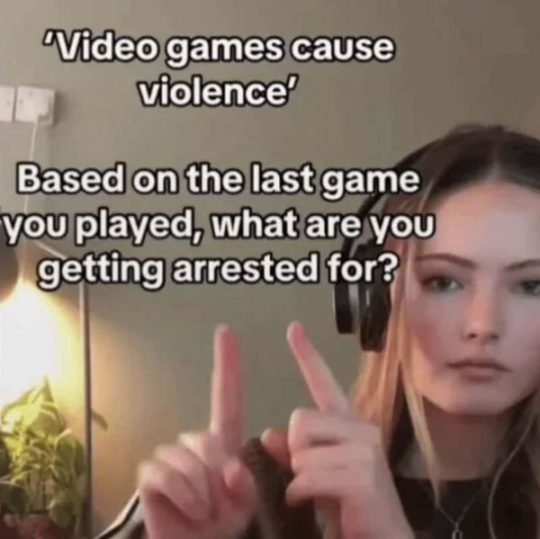
89K notes
·
View notes
Text
redownloaded instagram and got sucked into reels and it’s truly like an alternate reality happening over there. video of a girl being like “looking back on my cringe 2021 taste….” and it’s a pic of her wearing like. jeans and a top. the top has a checkerboard pattern. she’s like screaming in agony. the comments are all like “omg not the microtrend 😭 i can’t believe i ever wore that” like woah. i think you guys are crazy
#so funny to see ppl use the word microtrend but continue to follow them#like so you Know it’s bad …..#but you’re still doing it …….
30K notes
·
View notes
Text
Me and the mutual I pulled by being actually I have no idea why they followed me but I'm glad they did
28K notes
·
View notes
Text
Thinking of becoming a guy that thinks wolves are the most badass and aspirational animal, but about ants. Like wearing t-shirts about being loyal to my Queen and training to bench 5x my bodyweight. Studying ant warfare. Posting shit like this
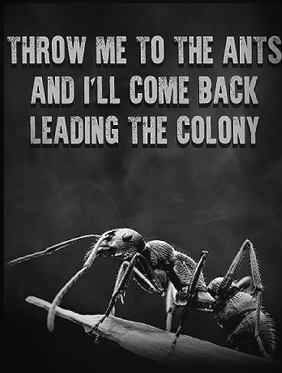
#Ant photo by Alex Wild. Inspirational ant image by me.#In a sense‚ the Ant mindset is antithetical to those who follow the Wolf. The lone‚ individualist “alpha” inclinations simply do not apply.#The Ant values her work and her sisters. She is a humble worker and brave soldier. So small‚ yet so strong... Because she's never alone.#This post was a lie. I'm actually already this theoretical person.
23K notes
·
View notes
Text
i feel like people are skimming over the uk riots in a way that makes me want to tear my hair out. muslims in the uk are in active danger. immigrants in the uk are in active danger. refugees in the uk are in active danger. people of colour in the uk are in active danger. asian communities in the uk are in active danger. black communities in the uk are in active danger.
there are massive far right riots throughout the country right now and people like fucking elon musk and nigel farage are inciting it and still have a platform to speak. people have used three young girls deaths, people's genuine grief in southport, to try and gain traction for their own racist bullshit and it's working.
a lot of refugee charities have been forced to close leaving many people without support, homes, funding, food, etc. if you aren't able to donate please consider sending a message via the conversation over borders campaign! it will send a hopeful, welcoming letter to a refugee in the uk. there is also a guide to staying safe here.
please do your own research and donate to refugee charities, anti-islamophobia charities, mosques who are trying to rebuild after being destroyed, counter protesters, here are some i've heard positive things about but the list is extensive; southport strong together (support for the southport victims and their families), southport mosque rebuilding, riot repair fund, middlesbrough vulnerable residents, nasir mosque rebuilding, hull help for refugees, bristol welcomes migrants,
#i know there's so much going on but if you can take a second to support these groups !!#i just feel kinda sick#i wanted to add with so many people seeing this that i'm white im british and im extremely privileged to not be in active danger right now#i don't want to take away from people speaking out about this who are in a place of danger#this was really only meant to be for my followers#but i'm glad more people get to see what's happening and donate !!!
29K notes
·
View notes